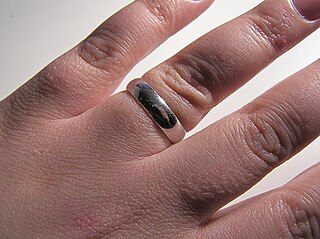Last Update: 01/13/16
When a driver is in a traffic accident, he or she usually isn’t the only one who gets hurt — often, the lives of others are impacted as well. A wife or husband, and even kids — car crashes can change the lives of the crash victim’s family too.
Fortunately, Florida Law recognizes that a family can be harmed in a personal injury car accident claim by allowing for damages to be awarded for something called “loss of consortium,” which are part of a “compensatory damages” award.
Harm to the Injury Victim’s Wife or Husband: Loss of Consortium Damages Recognized in Florida
Compensatory damages allow an injured party to recover actual damages and any economic loss they may have suffered because of the accident; these damages compensate the injury victim for the actual loss they’ve experienced as a result of the accident. The goal here is to put the victim as close as possible to replacement value of the loss they’ve suffered. Things like lost wages and future lost earning capacity are considered “compensatory damages.”
Compensatory damages in Florida are also defined to include losses that the wife or husband suffers for things like (past and in the future) companionship, comfort, society, help, and other kinds of spousal attention that they no longer receive from their spouse-victim because of the accident.
This particular kind of compensatory damages are collectively called “loss of consortium” damages, and they are unique and different for each case. If your claim goes to the jury, for example, the Florida Supreme Court’s Jury Instructions for this loss to them will be:
On the claim brought by (spouse), you should award (spouse) an amount of money which the greater weight of the evidence shows will fairly and adequately compensate (spouse) for any loss by reason of [his wife’s] [her husband’s] injury, of [his] [her] services, comfort, society and attentions in the past [and in the future] caused by the incident in question.
Consortium Claim Belongs to the Spouse
These damages are suffered by the husband or wife of the injury victim. They are separate from the victim’s damages and they must be dealt with as an independent claim for damages under insurance policies and in courtroom evidence.
However, these claims are not advanced usually in accident claims. Why? In accidents without long-term, permanent, or deadly injuries, the spouse’s consortium claims are not that high in amount. They are often inconsequential when the entire resolution of the accident is evaluated.
Additionally, proving these claims involves bringing forth evidence of the most personal nature. The loss of things that one spouse provides the other as part of their marital relationship, if brought into a courtroom fight or before a settlement conference table or mediation, means revealing things of the most intimate and private nature.
Therefore, “loss of consortium” claims usually are not advanced unless the accident is of the most serious nature. Couples facing the tragedy of the paralysis or traumatic brain injury of a spouse may advance these claims, and they are seen in wrongful death claims, too.
Releasing a Consortium Claim?
Sometimes, as part of an insurance settlement, a spouse will be asked to release a possible loss of consortium claim without any impact upon any injury claim that the victim has to make. The release of a spouse’s “LOC” claim in a personal injury settlement for their injured spouse is often requested by the insurance carrier, and usually the spouse will agree.
Why? In these situations, the insurance carrier is wanting the release to cover all the bases, and the LOC claim is an independent claim that could be advanced at a later date by the wife or husband after the settlement otherwise. After all, it is their independent claim for damages, separate from the injured accident victim.
The spouse, weighing the alternative of all that loss of privacy against the small amount that most LOC claims are (since most injury victims thankfully aren’t seriously and permanently harmed or killed), may agree to release their LOC claim as part of getting the settlement deal done.
What Should You Do?
A good piece of advice if you have been harmed in an accident, is to at least speak with an experienced personal injury lawyer before you file a claim to learn about some of the issues that can arise with these claims, including the type of evidence needed to prove a claim and the type and amount of damages you can recover. Most personal injury lawyers, like Alan Sackrin, will offer a free initial consultation (over the phone or in person) to answer your questions.
Related:
_______________
 Do you have questions or comments? Then please feel free to send Alan an email or call him now at (954) 458-8655.
Do you have questions or comments? Then please feel free to send Alan an email or call him now at (954) 458-8655.

